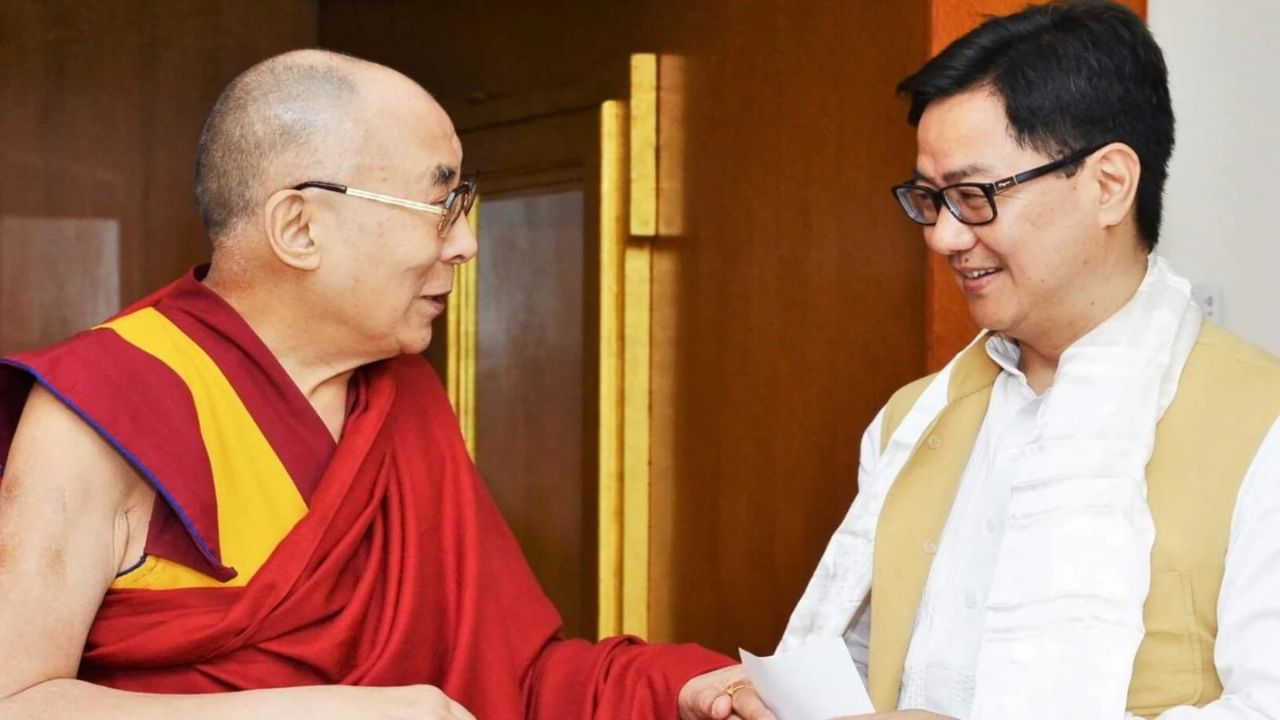 English
English

India reaffirms Tibet’s religious autonomy as Dalai Lama’s birthday celebrations begin. China claims succession rights, sparking diplomatic tensions. Senior Indian ministers join festivities, signaling continued support.

India Reaffirms Support for Tibetan Tradition as Dalai Lama Turns 90 (Image Source: Internet)
Dharamshala: Dharamshala remains the center of celebrations and anxiety these days. On the one hand, its followers from all over the world are gathering to celebrate the 90th birthday celebrations of the Tibetan religious leader Dalai Lama; on the other hand, political rhetoric about his successor has also intensified, reports Dynamite News correspondent.
India clears its stand on Tibet
Senior ministers of the Government of India, Kiren Rijiju and Lalan Singh, will also participate in this special event. Before this occasion takes place, Rijiju clearly states that the decision of the Dalai Lama's successor is only the jurisdiction of him or his institution' Gaden Fodrang', and there is no place for any external intervention.
His statement came in response to China's recent claim, in which it again reiterated that the successor should be decided only with the approval of Beijing. The Dalai Lama's birthday is celebrated on 6 July according to the Gregorian calendar, while it has started from June 30 according to the Tibetan Panchang.
Traditional religious rituals and cultural programs are being organized during this period. The Dalai Lama, who is living a deported life in India, has now become a global symbol of peace and nonviolence.
India continues its support despite China's bravado
Lalan Singh's participation is also considered important from a political point of view. His association with Nalanda—an ancient Buddhist education center—Tibetan culture, and India's common heritage further strengthens. This is a clear indication from India that it supports Tibetan faith and their cultural freedom.
Chinese defiance stand
Meanwhile, China again reiterated that the Tibetan Buddhist tradition has "Chinese characteristics" and the process of succession should be done with the permission of the Chinese government. But the Dalai Lama's office has made it clear that only the Gaden Phodrang Trust has the right to recognize the successor.
Why is it so sensitive?
This issue is also sensitive because Chinese occupation of Tibet has exceeded 60 years, and the Dalai Lama is struggling for Tibetan identity in a peaceful manner while living in exile. Of special concern is the disappearance of the 11th Panchen Lama, declared in 1995, who was allegedly detained by China's security agencies. China then appointed another Panchan Lama, which was never accepted by the Tibetan community and international human rights institutions.
If China tries to impose a successor politically by interfering with the tradition of the Dalai Lama, it will not only violate a religious tradition but will also be equal to a violation of cultural identity. In such a situation, the presence of senior leaders of India gives the message that India stands with the right to Tibetan faith, tradition, and self-determination.
No related posts found.